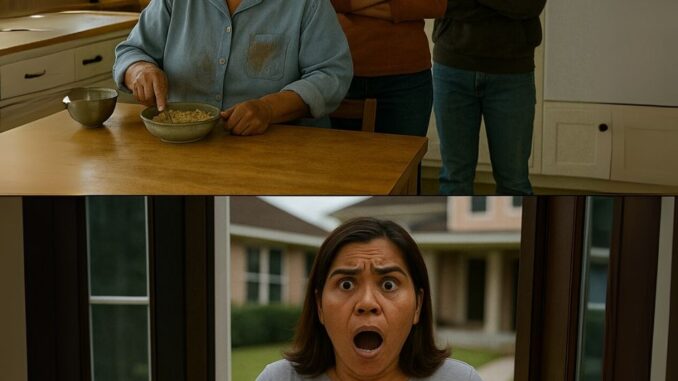
Had I known one cup of coffee could scorch sixty‑five years of dignity, I’d have stayed in bed. In my daughter Lisa’s sunny kitchen, wrapping my hands around a too‑bitter mug, I felt safe—until my grandson Travis casually asked, “Can I borrow your credit card again? Five thousand.” I said no.
Silence fell. Then Lisa tipped my boiling coffee into my lap. The mug shattered. My pajamas soaked, my pride burned. No one reacted as I stood, searing and stunned.
Lisa’s husband folded his arms coldly: “Either give Travis what he wants or leave. We’re not running a shelter.” That word stung harder than the burn.
“Five thousand?” I asked, voice shaking. “For gadgets?” She accused me of hoarding since Dad died. I reminded her I’d paid the bills and never asked her to fund my medication. She dismissed me, reminding me of my hospitalization, of all she’d done to support me. It felt like betrayal.
I realized: this wasn’t my daughter anymore—just someone treating me like a troublesome account. Travis watched, bored. No one offered help. Lisa stood firm: “Hand over the card, or be gone before nightfall.”
I collected myself, rinsed my hands, and said quietly: “I’ll leave before dark.” She expected resistance. But I finally remembered: silence isn’t weakness. Some debts are paid with patience and resolve, not cash.
I closed the door behind me and sat alone in the guest room, legs still burning—but the real pain was knowing she meant it.